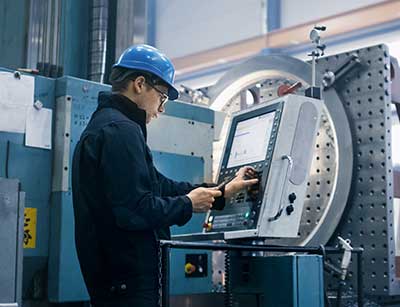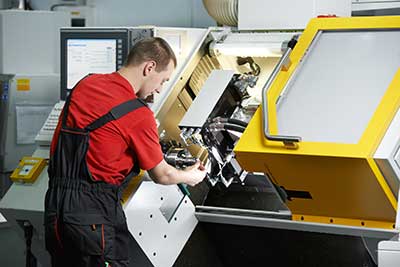Mill Operator Staffing
RSS is Your Trusted Source for Mill Operators
Drawing upon our extensive 30-year background in staffing, we have developed a profound insight into the unique challenges and demands of efficiently and safely operating manual and CNC milling machines. We provide your enterprise with adept, knowledgeable, and dependable mill operators who will effortlessly assimilate into your workflow and bolster your success.

Regional Supplemental ServicesOn-Demand Reliable Workforce

Mill Operator Staffing Solutions
For those instances where you need to fill a sudden vacancy, adapt to seasonal changes in workload, or embark on a temporary initiative, our team at RSS is here to ensure you’re fully supported. Our flexible staffing services are designed to meet your requirements, ensuring that your milling operations continue smoothly and efficiently.
Mill Operator Staffing Solutions: Acknowledging the critical nature of uninterrupted milling operations, we offer prompt staffing responses to meet your immediate needs, ensuring that your operations continue seamlessly while adhering to the highest safety standards.
Tailored Staffing Approaches: Understanding that each business has its unique challenges and staffing needs, we collaborate closely with you to comprehend your specific situation. Armed with this understanding, we develop a staffing solution that aligns with your operational goals and budgetary constraints, ensuring a perfect fit for your organization
Qualified and Reliable Manual and CNC Milling Machine Operators


Positions We Fill
Milling Operator
Mill Room Operator
CNC Mill Operator
Tube Mill Operator
Cold Rolling Mill Operator
Mill Maintainence
Discover The RSS Difference
Flexibility & Reliability: Our adaptable staffing solutions are specifically shaped to meet the dynamic requirements of your mill operations, providing the reliability and peace of mind that comes with knowing your processes are in proficient hands.
Cost-Effective Strategies: Opting for RSS for your temporary staffing needs bypasses the financial burden and complexities associated with onboarding and training new employees. Our approaches are economically savvy, allowing you to allocate your resources better.
Emphasis on Safety: The safety of your operations is our top priority. We ensure that every mill operator we supply adheres to the strictest safety protocols, minimizing risks and creating a safer work environment for everyone involved.
Contact Us
Don’t let staffing obstacles disrupt your mill operations. Contact RSS today to discover how our specialized temporary staffing solutions can assist you in maintaining smooth, efficient, and secure production processes.
Client Testimonials
Frequently Asked Questions
What industries do Milling Machine Operators work in?
Milling operators work in various industries, including manufacturing, aerospace, automotive, and metalworking. The role requires a good understanding of machining principles, the ability to read and interpret blueprints and drawings, and knowledge of different materials and cutting tools. Training for milling operators can vary from on-the-job training to more formal education in machining technology programs.
What does a Milling Machine Operator do?
A milling operator, also known as a milling machine operator, is a professional who operates equipment and machinery designed for the milling process. Milling is a machining process involving rotating multi-point cutting tools to remove material from a workpiece. This process can create a wide variety of features on a part, including holes, slots, pockets, and even complex surface contours. Milling machines can be manually operated, mechanically automated, or digitally operated via CNC (Computer Numerical Control).
The duties of a milling operator include:
- Setting up the milling machines: This involves selecting and installing the appropriate cutting tools, adjusting the machine settings, and securing the workpiece onto the machine table.
- Operating the machines: The operator starts the machine and monitors it during the machining process, making adjustments as needed to ensure the quality of the workpiece.
- Inspecting and measuring finished pieces: After the milling process, the operator uses precision measuring instruments, such as calipers and micrometers, to inspect the dimensions and surface quality of the workpiece to ensure it meets the specified tolerances and requirements.
- Maintaining the equipment: Regular maintenance and cleaning of the milling machines are part of the operator’s responsibilities to ensure the machines operate efficiently and safely.
- Problem-solving: Milling operators must be able to troubleshoot issues that arise during the milling process, such as problems with the cutting tools or discrepancies in the dimensions of the workpiece.
What does a CNC Milling Machine Operator do?
What training does a Mill Operator need?
For Employers Looking for Staffing Solutions?
Employers please submit the form below regarding your need for staffing solutions.
